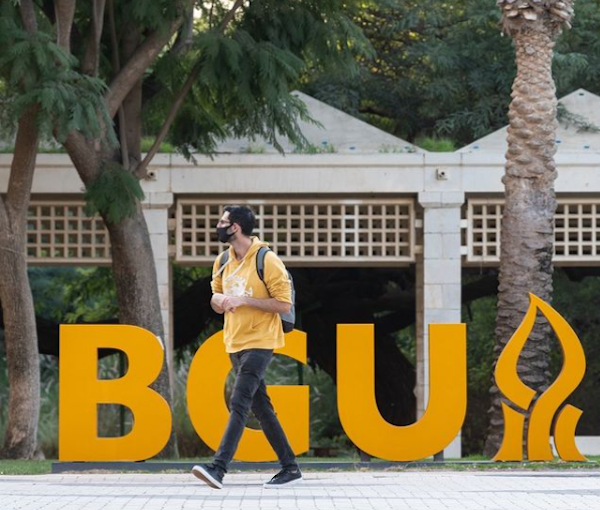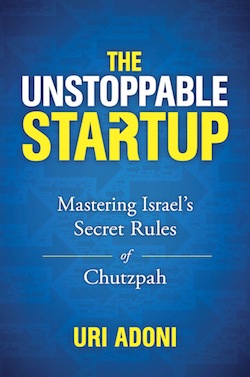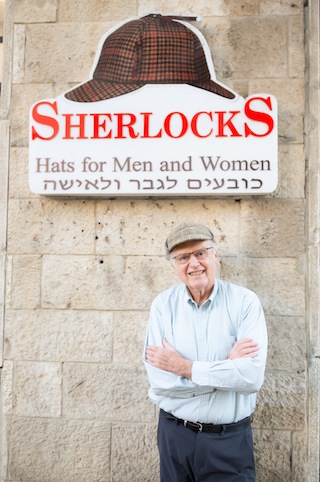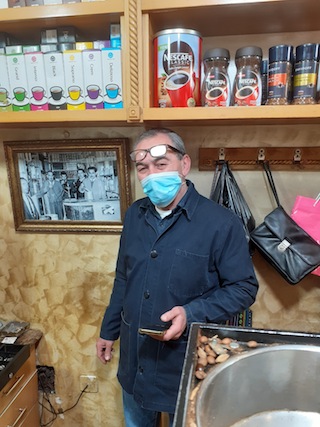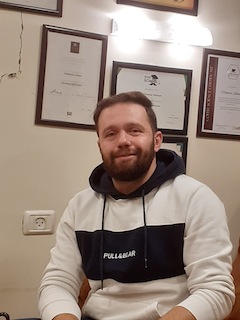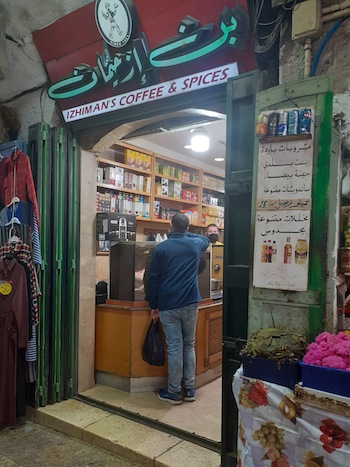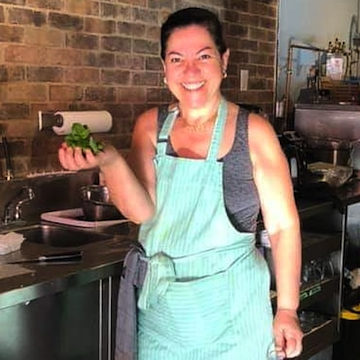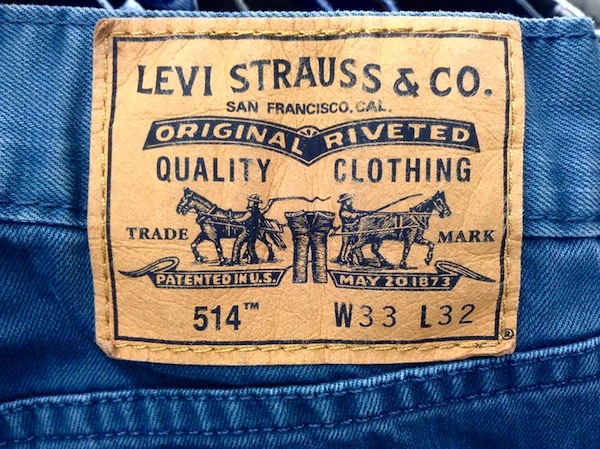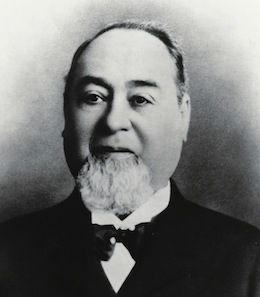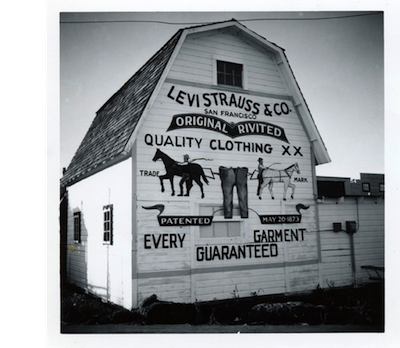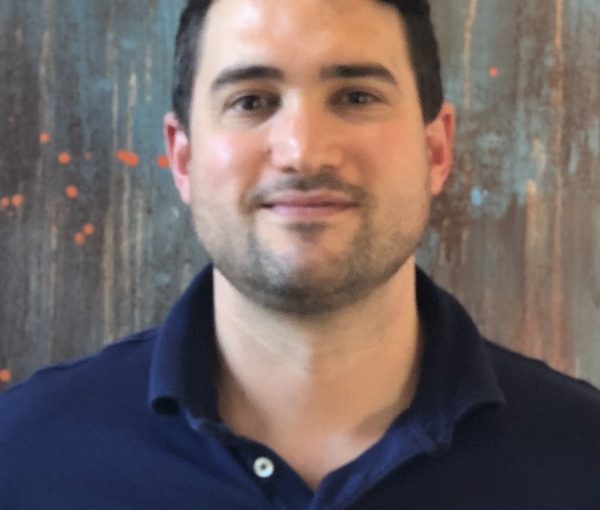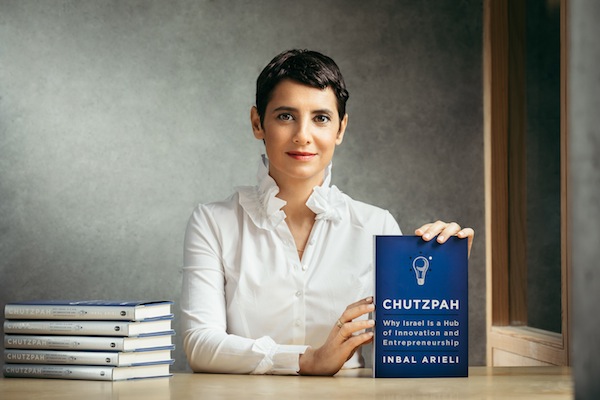The Lando family donated to the federal government the islet that is now West Grebe Islet Marine Park. The park will be held in perpetuity for wildlife conservation and is off limits to people. (photo from Barbara Schloss)
Barbara Schloss remembers the day in the 1970s when her father came home and announced, “Guess what I did? I just bought an island.”
Her father, Esmond Lando, was a familiar face in Vancouver’s Jewish community, known to everyone as Bud. Snapping up an island may have been a little out of the ordinary for most dads, but Bud Lando had a finger in all sorts of pies, his daughter recalls.
Neither the father nor, until recently, the rest of the family, though, had any idea of the value of the island – “islet,” to use the precise terminology – he had bought. And, while the tiny West Grebe Islet is located just off West Vancouver’s Lighthouse Park – and, therefore, a short kayak ride from some of the world’s priciest real estate – the value isn’t so much in dollars as in ecological biodiversity. So rich in bird and animal species is the one-third-hectare (about 0.8 acres) island that the federal government was delighted to accept the rocky outcrop from the Lando family through Canada’s Ecological Gifts Program.
The islet is known to some West Van locals as “Seal Rock,” due to the prevalence of the sea mammals hanging about on or around the place. But, according to North Shore News reporter Brent Richter, who wrote about it last year, birders have identified 89 different bird species that either inhabit West Grebe or drop in during migration, including black oyster catchers, turnstones, marbled murrelets and one of the highest densities of surf scoters in the region. A pair of eagles are routinely spotted on the Coast Guard light beacon.
Schloss, who is a longtime resident of Montreal, says she didn’t know the ecological richness of the place when she contacted the feds on behalf of her siblings and the family to offer it to the federal government. Now that she knows, she likes to think her late father had an inkling of the gem he rescued and preserved from development. The family will celebrate their father’s foresight this weekend at a dedication ceremony where a plaque will be unveiled acknowledging Esmond Lando’s contribution to preserving West Grebe.
But, there is a larger story.
The Landos lived in Shaughnessy – Schloss’s sister, Roberta Beiser, still lives in the family home – but Bud had a special connection with West Vancouver. That connection is a tale of discrimination and civil rights in British Columbia.
Jews were not welcome on golf courses anywhere in Metro Vancouver when the nine-hole Gleneagles Golf Course came on the market in 1951. It had been developed two decades earlier and named after the legendary links in Scotland.
Bud Lando and pal Dave Sears snapped up the golf course – and opened it to Jewish players. Golf courses would become a sideline for Lando, but only one of many.
“He really was like a Renaissance man,” said Schloss. “He loved creating, he was very creative. He painted, he sculpted – this was all on the side. At home, we had a kiln. He decided he was going to make wine, so he got a whole bunch of grapes somewhere and went to a distillery somewhere and made sure that that wine had ‘Esmond Lando’ on it. It was just another passion of his.”
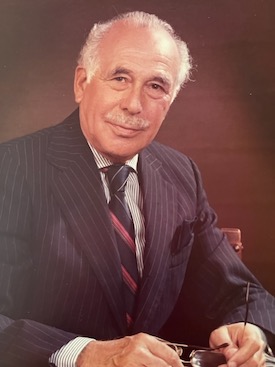
Lando was a successful practising lawyer, and he partnered with friends in a vast range of entrepreneurial pursuits.
“If anyone would suggest something, he would look it over and, if it looked like a possibility, he was in it,” Schloss said of her father.
With a couple of friends, he launched Queen Charlotte Airlines, she recalled, as well as a box company, a lumber mill in Chilliwack and a trucking company. “He was into everything he could possibly find,” she said.
The golf sideline was important – not just because Lando loved to play, but because the discrimination rankled him. Sears and he soon sold Gleneagles so they could construct the full 18-hole course that is now the Richmond Country Club. Lando then developed courses in Delta and Surrey.
“Gleneagles was a very important purchase for my father, who was very plugged into the Jewish community,” said Schloss. “He was part of Canadian Jewish Congress and was very active in the Jewish community. Plus, he was on a council for Christians and Jews. He was very ecumenical, but Jews were very important for him. That’s why he got involved with Gleneagles.”
Bud Lando came by his entrepreneurial spirit and sense of adventure naturally. Bud was born in England and his parents, Lou and Sara Lando, trundled the family of six off to Prince Rupert, B.C., in 1911, when Bud was a tyke.
“That was supposed to be the metropolis,” Schloss said of the northern B.C. port town. “That was going to be where everything was happening.” She added with a laugh: “Didn’t happen.”
The family moved to Vancouver and got into the fur trade. They opened Lando’s Furs, opposite the Canadian Pacific Railways station (now Waterfront station, where Seabus and Skytrain meet).
Bud Lando graduated from law school at the University of Alberta and practised for decades, becoming Queen’s Counsel. He and his wife, Edith Mitchell Lando, originally from Winnipeg, raised four children. In addition to Schloss and Beiser, daughter Juli Hall now lives in Houston, Tex., and son Barry Lando lives in Paris. Barry was a producer for the American TV newsmagazine 60 Minutes. (Mike Wallace, the late longtime cohost of the program, said that, without Lando, “there would have been no 60 Minutes.”)
The four siblings, their children and grandchildren will gather this weekend at Gleneagles Golf Course to dedicate two plaques – one at the course itself and another a short walk away, from where the islet can be viewed.
“When my father passed away, we each took on part of the heritage of my father, whatever he left behind we divvied up and decided who would be in charge of what,” said Schloss. “I got Grebe. That was one of the things that I was involved with.”
It was Barry Lando who told her about the federal program and that the government might be interested in the property. Indeed, they were. The island was formally transferred to the federal government last year, but under an agreement with the District of West Vancouver, it will be cared for by the municipality and was officially designated as West Grebe Islet Marine Park earlier this year.
The islet will be held in perpetuity for wildlife conservation and is now off limits to bipeds in order to conserve its ecological value. Barry Lando and some of his family members are, therefore, among the few people to have set foot on the place. They once approached by boat and then swam up to the islet but its geography meant it was never a welcoming spot for casual visitors.
“My father would be so pleased and proud to know that he had the foresight to recognize a treasure and to save it from development,” said Schloss, adding that he would be happy knowing that his legacy and the island is preserved forever. “I think it would mean a lot to him to know this.”


